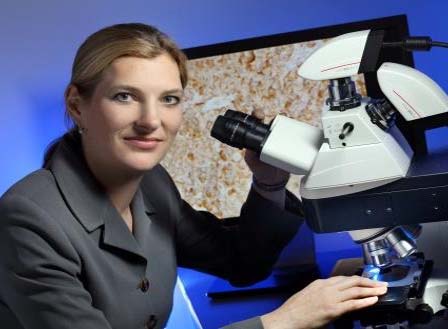The University of Chicago and Johns Hopkins' Bloomberg~Kimmel Institute for Cancer Immunotherapy have published a pair of studies looking at biomarkers involved in the immune system's response to tumors in the Nov. 7 issue of the Proceedings of the National Academy of Sciences.
The University of Chicago studies are explained here.
For the Johns Hopkins research, scientists studied 3500 tumor samples among nine cancer types recorded in The Cancer Genome Atlas to analyze five biomarkers of immune activity within tumors. They include: whether the microenvironment within a tumor is inflamed, the number of mutations present in tumor cells, and expression levels of immune-system related proteins called PD-1, PD-L1, and PD-L2, which can be coordinately expressed in the environment surrounding a tumor to ward off an immune system attack.
"Scientists have been looking at these markers independently, but we wanted to know how
they relate to each other and which was most influential in patients' survival," says Janis Taube, M.D., associate professor of dermatology and pathology at the Johns Hopkins University School of Medicine and member of the Johns Hopkins Kimmel Cancer Center and its Bloomberg~Kimmel Institute for Cancer Immunotherapy.
Taube and her team found that all five factors were important in predicting survival of patients with metastatic melanoma. Four of the factors — PD-1, PD-L1, PD-L2 and inflammation — have very tight links, they say, and their research suggests that when expression levels of these factors are high, they are more important in predicting patients’ survival than the amount of mutations present in the tumor. However, when these factors are low, mutational load plays an important role in predicting survival.
"This is an important step in understanding how to develop multifactorial-biomarkers for predicting patient outcomes," says Taube.
